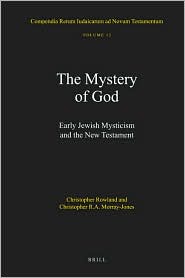Although it is true that Balthasar once said of his major triptych, "I wrote it all for Barth," thus perhaps suggesting an indebtedness to Barth, one should not ignore the second half of the statement, "to convert him." Balthasar, I suggest, was not interested in Barth because he was the genius of his age (as most Barthians would contend), but because Balthasar saw in Barth the finest, most Catholic Protestant theologian Christianity had known. I suspect Balthasar's interest was ecumenical and conciliatory, and that he drew on Barth as a kindred theologian from the Protestant side in that capacity. Now doubt, Balthasar admired Barth for heroically uprooting the tracks to Protestant theology just as he admired the nouvelle theologie for waking from the Thomistic slumber of Catholic theology (on which, see Fergus Kerr's excellent book
I recently discovered a fine review of Stephen Wigley's book, Karl Barth and Hans Urs von Balthasar
I know it is hard to believe that Karl Barth might not have influenced profoundly every theologian of note, but it is just true. Barth was a genius in many ways, and certainly (at least to my mind) the prince of twentieth-century Protestant theologians. But let us resist finding his genius everywhere and make room for others of similar genius. Balthasar was one of these. He was an incredibly talented, creative, and original thinker. In reality, his influences lie with the whole of the German intellectual tradition (especially Idealism), with the Church Fathers, with French literary figures, and the list goes on. Balthasar devoured philosophers, theologians, literary authors, and composers with awe-inspiring capacity and range. While Barth, as the greatest Protestant theologian of his age, was inevitably one of those influences, he was not the only, nor even the main influence, impetus, or source for Balthasar's theological writings. The reductio ad Barth is a severly diminished understanding of Balthasar's mind.
And so, I offer a gentle plea to Barthians to read Balthasar on his own terms, and not through Barth-shaped glasses. I think the exercise is well worth the exertion.


